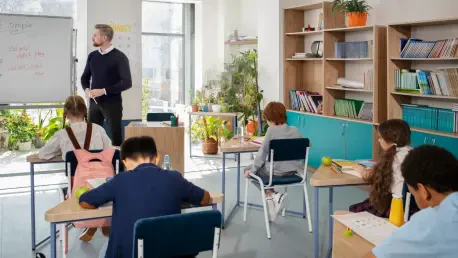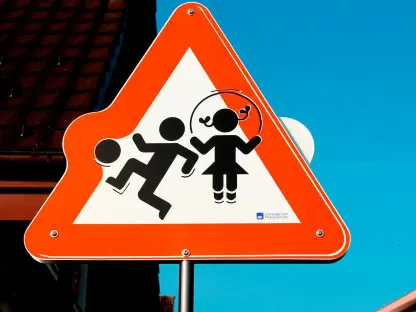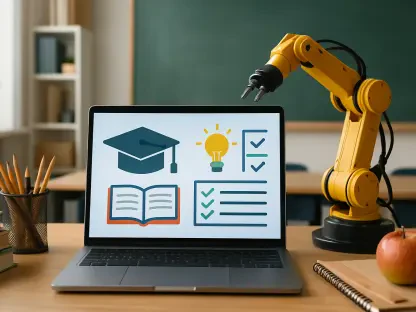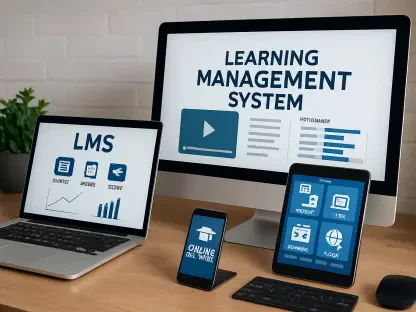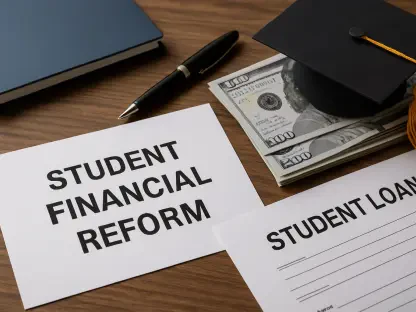In today’s educational landscape, a pressing challenge has emerged that threatens the foundation of learning environments across the nation, as a growing number of young students struggle with self-regulation, a critical skill for academic and personal success. Reports from educators and parents alike paint a troubling picture: kindergartners displaying difficulties in managing their emotions and behaviors, leading to disruptions that affect entire classrooms. Experts like Ellen Galinsky, president of Families and Work Institute, and Barb Wilder-Smith, executive director of Tools of the Mind, have sounded the alarm on this issue, emphasizing the urgent need for action. A nationwide survey by the NCES reveals that three-quarters of K-12 educators consider lack of focus—a key indicator of dysregulation—a significant barrier to learning. This crisis not only impacts students but also contributes to teacher burnout and unsafe school settings, making it a priority for educational leaders to address with innovative and effective strategies.
1. Understanding the Depth of the Challenge
A critical first step in tackling this issue lies in recognizing the scope and implications of the self-regulation crisis affecting classrooms today. Elementary school principal Ian Knox from upstate New York has observed a noticeable rise in kindergartners struggling with self-regulation, creating stress for both teachers and peers. This observation is backed by data showing that 27% of preschoolers face similar challenges, as reported by concerned parents. Furthermore, a longitudinal study in Massachusetts, shared at a recent conference by the Society for Research in Child Development, highlighted a disturbing trend: young children’s executive function (EF) skills, essential for self-regulation, have yet to recover from setbacks experienced during the pandemic. University of Minnesota professor Stephanie Carlson noted the significant developmental delays, underscoring how far behind students are for their age. This evidence points to a systemic issue that demands more than temporary fixes—it requires a comprehensive understanding and targeted interventions to support affected students.
Beyond identifying the problem, attention must shift from assigning blame to finding actionable solutions that can reverse these troubling trends. While factors such as the pandemic, social media, and academic pressures are often cited as potential causes, dwelling on fault does little to help struggling students. Instead, the focus should be placed on understanding self-regulation as a skill rooted in executive function, which governs attention, behavior, and emotional control. Research demonstrates that EF skills are not merely supplementary but are foundational to learning and lifelong achievement, often surpassing IQ or socioeconomic status as predictors of success. Mistaking dysregulation for misbehavior or laziness leads to ineffective responses like rewards or punishments, which fail to build the necessary capabilities. A deeper grasp of these skills is essential to move forward with strategies that foster development rather than simply manage surface-level behaviors in classroom settings.
2. Redefining Self-Regulation Concepts
The approach to self-regulation must evolve to reflect its dynamic and situational nature, rather than viewing it as a static trait that a child either possesses or lacks. Self-regulation varies based on immediate circumstances—a student might excel in one task but struggle in another due to mental fatigue or emotional triggers, much like an athlete faltering after intense exertion. This variability highlights the importance of context in assessing and supporting a child’s ability to manage themselves. Recognizing that even students with strong self-regulation can become dysregulated under certain conditions shifts the perspective from labeling to understanding. Such insight encourages educators and caregivers to look beyond surface behaviors and consider underlying factors that may deplete a child’s capacity to focus or remain calm, paving the way for more empathetic and effective support mechanisms in educational environments.
Moreover, the development of self-regulation and executive function skills hinges on consistent, supported practice woven into everyday experiences, rather than isolated or one-off lessons. Research indicates that standalone activities often fail to achieve “far transfer,” meaning children struggle to apply learned skills to different contexts without repeated exposure. To counter this, opportunities for practice must be embedded in varied real-life scenarios, ensuring that students can generalize their abilities across situations. Importantly, this approach benefits all children, not just those who exhibit difficulties, as everyone gains from reinforcing these critical skills through regular application. By rethinking how self-regulation is nurtured, educators can create environments where skill-building becomes a natural part of daily routines, fostering resilience and adaptability that students carry forward into diverse challenges throughout their academic journeys and beyond.
3. Implementing Practical Solutions for Skill-Building
One promising avenue for addressing this crisis involves adopting an “executive function lens” to identify and leverage opportunities for skill-building within routine activities at school and home. This perspective does not require adding more tasks to already packed schedules but rather reimagining how existing interactions can support self-regulation. For instance, during clean-up time, children can be engaged in planning by assigning roles, such as deciding who handles specific items with prompts like, “When the music starts, let’s all help out. I’ll manage the books—what will you do?” Sustaining effort toward goals can be encouraged by setting a timeframe, as in, “Let’s see how much we can finish before the music stops.” Reflection afterward is crucial, with questions like, “How did it go? What can we keep the same or change tomorrow?” These steps—engaging in planning, sustaining effort, and reflecting on the experience—turn ordinary tasks into powerful learning moments for developing essential skills.
In addition to group activities, individualized coaching plays a vital role in supporting students who struggle with maintaining focus or emotional control. When a child shows signs of dysregulation, responding like a mentor can make a significant difference by expressing confidence in their potential, with affirmations such as, “I know you can learn to stay focused.” Helping them develop strategies, like asking, “What’s your plan if your mind starts to wander?” empowers them to take ownership of their behavior. Reviewing progress afterward with inquiries like, “How did that work for you?” reinforces learning and adjustment. These steps—showing confidence, developing strategies, and reviewing progress—ensure tailored support that addresses specific needs. By embedding such practices into daily interactions, educators can foster an environment where self-regulation is not just taught but actively cultivated through personalized guidance and consistent reinforcement.
4. Moving Forward with Urgency and Hope
The urgency to address this self-regulation crisis cannot be overstated, as each day of inaction sees more students falling behind and educators inching closer to burnout from managing disrupted classrooms. Data reveals a clear correlation between unaddressed dysregulation and negative outcomes, including reduced learning time and heightened stress among school staff. However, there is a silver lining: when teachers prioritize building these skills, measurable improvements emerge. Classrooms experience fewer interruptions, student engagement strengthens, and more time is devoted to meaningful instruction, ultimately boosting teacher satisfaction. AASA, The School Superintendents Association, champions “Real Skills for Real Life” as a cornerstone of transforming public education, placing self-regulation and executive function at the heart of this mission. This framework underscores the need for systemic change to equip students with tools for navigating today’s complex educational landscape.
Looking back, efforts to tackle this issue gained momentum as educators and parents recognized that dysregulation was not merely about behavior management but about skill development. Reflecting on past initiatives, it became evident that success hinged on collaborative action between schools and families to integrate self-regulation practices into daily life. The focus shifted toward actionable steps, such as training programs for teachers to spot skill-building opportunities and resources for parents to reinforce these lessons at home. Future considerations must include scaling up evidence-based programs like Tools of the Mind, which integrate self-regulation with academic learning. Additionally, policy support for professional development can ensure sustained impact. By continuing to view this challenge as an opportunity to empower students with lifelong skills, the educational community can build a foundation for success that extends far beyond the classroom walls, preparing the next generation for whatever lies ahead.
